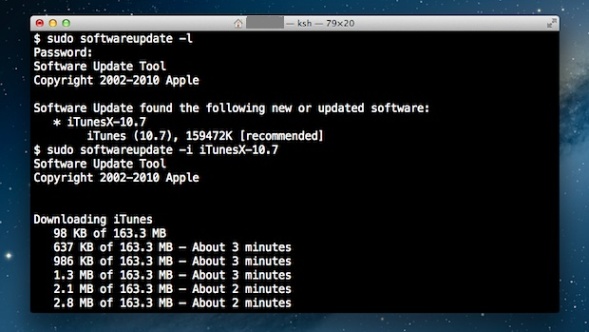

- MAC OSX TERMINAL EMULATOR FOR MAC
- MAC OSX TERMINAL EMULATOR INSTALL
- MAC OSX TERMINAL EMULATOR SOFTWARE
- MAC OSX TERMINAL EMULATOR DOWNLOAD
See the homepage for install methods (boostrap, npm, Homebrew, third-party), and all the usage details. Targeted use you can run a version directly from the cached downloads. The versions are installed system-wide or user-wide, and for more Or select from a menu of previously downloaded versions. Specify the target version to install using a rich syntax,
MAC OSX TERMINAL EMULATOR FOR MAC
N is a simple to use Node.js version manager for Mac and Linux. Or build manually from pkgsrc: cd pkgsrc/lang/nodejs & bmake install n Install the binary package: pkgin -y install nodejs Using MacPorts: port install nodejs # Example
MAC OSX TERMINAL EMULATOR DOWNLOAD
If you want to download the package with bash: curl " $.pkg" > " $HOME/Downloads/node-latest.pkg" & sudo installer -store -pkg " $HOME/Downloads/node-latest.pkg" -target "/" Alternatives See this support document for more details macOSĭownload the macOS Installer directly from the web site. Node.js can also be installed with the IBM i Access Client Solutions product. To install Node.js 14.x from the command line, run the following as a user with *ALLOBJ special authority: yum install nodejs14 The package name is nodejs followed by the major version number (for instance, nodejs12, nodejs14 etc) LTS versions of Node.js are available from IBM, and are available via the 'yum' package manager. Node.js is available in the portage tree. Or compile it on your own using ports: cd /usr/ports/www/node & make install Gentoo Install a binary package via pkg: pkg install node The most recent release of Node.js is available via the www/node port. It allows you to perform operations like install, uninstall, switch Node versions automatically based on the current directory, etc.įnm has cross-platform support (macOS, Windows, Linux) & all popular shells (Bash, Zsh, Fish, PowerShell, Windows Command Line Prompt).įnm is built with speed in mind and compatibility support for. fnmįast and simple Node.js version manager built in Rust used to manage multiple released Node.js versions. Packages compatible with Debian and Ubuntu based Linux distributions are available via Node.js snaps.

Node.js binary distributions are available from NodeSource. Node.js binary distributions maintained and supported by NodeSourceĭebian and Ubuntu based Linux distributions.Node.js snaps maintained and supported at.These resources provide packages compatible with CentOS, Fedora, and RHEL.
MAC OSX TERMINAL EMULATOR SOFTWARE
To see a list of available streams: dnf module list nodejsįor example, to install Node.js 12: dnf module install nodejs:12įor CentOS/RHEL 7 Node.js is available via Software Collections. Where corresponds to the major version of Node.js. Node.js is available as a module called nodejs in CentOS/RHEL 8 and Fedora. pacman -S nodejs npm CentOS, Fedora and Red Hat Enterprise Linux Node.js and npm packages are available in the Community Repository. This command in Termux app will install the last available Node.js version: pkg install nodejsĬurrently, Termux Node.js binaries are linked against system-icu (depending on libicu package). For example, Termux community provides terminal emulator and Linux environment for Android, as well as own package manager and extensive collection of many precompiled applications. However, there are some third-party solutions.


 0 kommentar(er)
0 kommentar(er)
